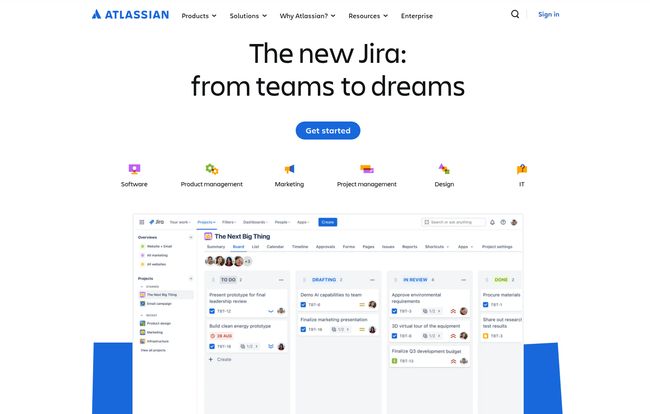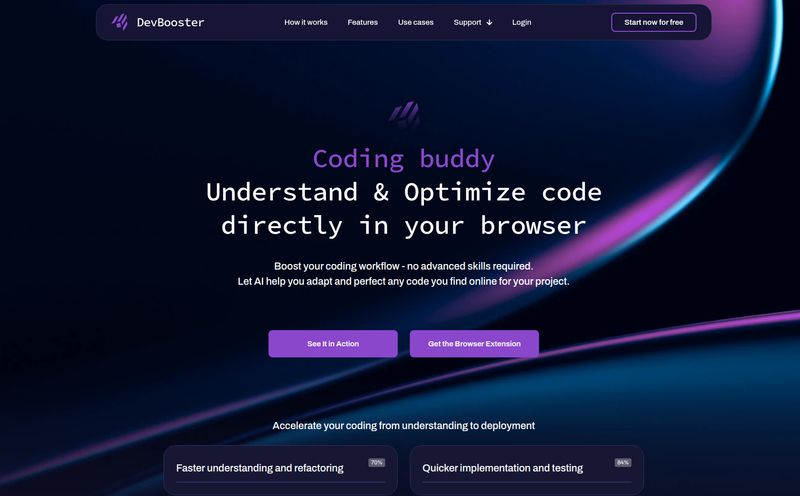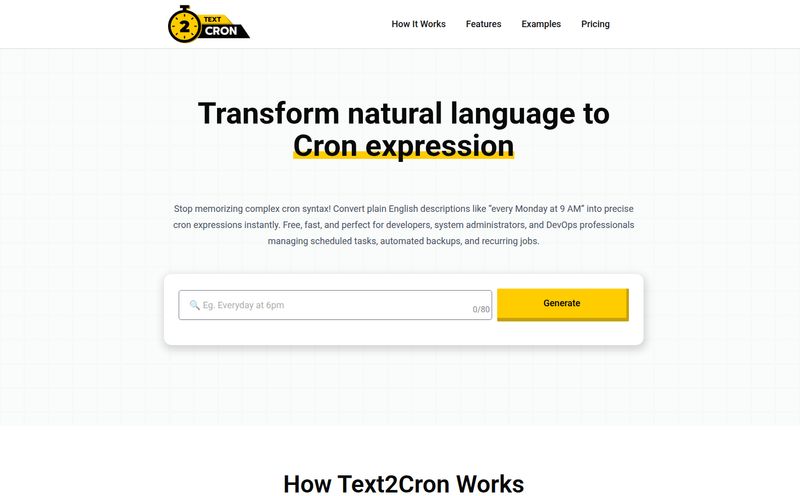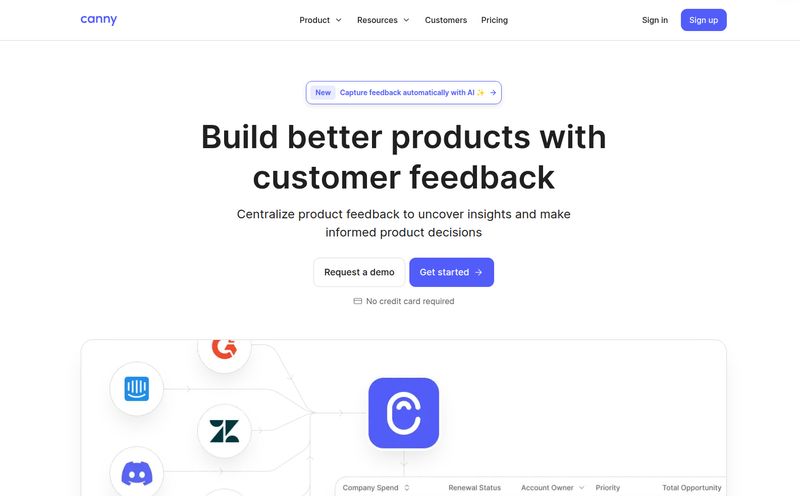How many tabs do you have open right now? Be honest. I'm guessing there's a Jira ticket, a GitHub or GitLab repo, your IDE, a Slack channel, probably a separate tab for your CI/CD pipeline runner, and maybe a Stack Overflow page you've been staring at for an hour. The modern developer workflow is... chaotic. We're constantly juggling flaming torches, and that constant context switching is a productivity killer.
For years, we've been told to build the “best-of-breed” toolchain, picking the absolute best tool for every single job. The result? A Frankenstein's monster of integrations held together with duct tape and hope. I've been there, managing projects where the link between a task and the code that solved it was a manually pasted URL in a comment. It’s messy.
That's why I've been taking a closer look at platforms that try to bring it all back under one roof. Today, we're talking about Atlassian's Bitbucket Cloud. It's not just another Git repo; it's a full-on code and CI/CD platform designed to play very nicely with the rest of the Atlassian family, especially Jira. The question is, is it any good? And more importantly, is it right for you?
So, What Exactly Is Bitbucket Cloud?
At its heart, Bitbucket is a Git-based code hosting service. You create repositories, push your code, manage branches, and handle pull requests. You know, the standard stuff you'd expect from any modern version control platform. But that's like saying a smartphone is just a device for making calls. The real magic isn’t what it is, but how it connects.
Bitbucket is Atlassian’s answer to GitHub and GitLab, but with a home-field advantage. It's built from the ground up to integrate seamlessly into the Atlassian ecosystem. If your team lives and breathes Jira for project management and Confluence for documentation, then Bitbucket isn't just a third-party tool you have to awkwardly connect; it's part of the family. It aims to put your code, your deployment pipeline, and your project tracking all in one place, reducing that dreaded context switch.

Visit Bitbucket
The Features That Actually Matter
A feature list is just a list. What I care about is how those features impact my day-to-day work. Here's what stands out with Bitbucket.
The Jira Integration is Chef's Kiss
I can't overstate this. This is the number one reason to even consider Bitbucket. The integration with Jira is so tight, it feels less like two separate products and more like two sides of the same coin. You can create a new Bitbucket branch directly from a Jira issue, and it will automatically be named with the issue key (e.g., `PROJ-123-fix-the-login-button`). It's a small thing, but it saves time and keeps everything insanely organized.
When you create a pull request, you can see the associated Jira ticket details right there. And the best part? You can configure workflows to automatically transition Jira tickets. For example, when you merge a pull request, the corresponding Jira ticket can automatically move from 'In Review' to 'Done'. This automation eliminates the tedious manual updates that we all forget to do. It’s like having a personal assistant tidying up your project board for you.
Built-in CI/CD with Bitbucket Pipelines
Remember the days of maintaining a separate, cranky Jenkins server in a forgotten corner of the office? I do, and I don't miss them. Bitbucket Pipelines brings CI/CD right into your repository. You define your build, test, and deployment steps in a simple YAML file (`bitbucket-pipelines.yml`) that lives right alongside your code. Configuration as code, as it should be.
This means your build process is version-controlled just like your application. New team members can see exactly how the project is deployed just by looking at the repo. For many teams, this is powerful enough to replace their existing CI/CD tools, simplifying the toolchain and reducing costs. It's not as infinitely configurable as a standalone tool like Jenkins, but for 90% of web apps and services, it's more than enough.
The Rise of AI in Your Workflow
AI is the buzzword of the year, I know. But some of the AI features Atlassian is baking into Bitbucket are genuinely useful. The AI-powered pull request descriptions are a great example. It can scan your changes and generate a pretty decent summary of what you did. It's not perfect, but it's a fantastic starting point and saves you from typing out the same old stuff. It helps you focus on the why of your change, not just the what.
They're also pushing forward with Atlassian Rovo, which promises to use generative AI across the entire platform. While still new, the idea of having an AI assistant that understands your code, your tickets, and your documentation is pretty compelling. It’s a space to watch.
Security and Governance for the Grown-Ups
As projects get bigger, you need more control. Bitbucket Premium offers some serious governance features. You can enforce merge checks to ensure, for example, that every PR has at least two approvals and a successful build before it can be merged. It also has built-in security vulnerability scanning for your code and its dependencies, which is a huge part of any solid DevSecOps strategy. Features like IP allowlisting and required two-factor authentication add that extra layer of security that enterprise clients and security-conscious teams demand.
Let's Talk Money: Bitbucket Pricing Breakdown
Okay, the all-important question: what's this going to cost me? Bitbucket's pricing is pretty straightforward and competitive, especially for smaller teams. They break it down into three main tiers.
| Plan | Price | Key Features |
|---|---|---|
| Free | $0 | Up to 5 users, 50 build minutes/month, unlimited private repos. |
| Standard | $3.00 / user / month | Up to 100 users, 2,500 build minutes/month, merge checks. |
| Premium | $6.00 / user / month | Up to 100 users, 3,500 build minutes/month, required 2FA, IP allowlisting, advanced security. |
The Free Plan: Perfect for Small Teams and Starters
The free tier is genuinely generous. Up to 5 users and unlimited private repositories is fantastic for personal projects, freelancers, or small startups just getting their footing. The 50 build minutes per month isn't a lot, but it's enough to get a feel for Pipelines.
The Standard Plan: The Sweet Spot for Most
At $3 per user, this is where most growing teams will land. You get a significant bump in build minutes (2,500) and access to merge checks, which are critical for maintaining code quality. This plan hits the sweet spot of functionality and cost for the majority of small to medium-sized businesses.
The Premium Plan: For When You Mean Business
At $6 per user, the Premium plan is for teams that need advanced security and compliance. The key differentiators are IP allowlisting, enforced merge checks, and deployment permissions. If you're working in a regulated industry or just have a very mature development process, this is the tier for you.
The Good, The Bad, and The Honest Truth
No tool is perfect. Let's be real. While I'm a fan of what Bitbucket is doing, it's not without its drawbacks. I've always felt the UI, while functional, lacks a bit of the polish of GitHub. It's gotten much better, but it can still feel a bit... corporate at times.
The biggest potential negative is the vendor lock-in. When you go all-in on the Atlassian ecosystem, you're tying your workflow to one company. Migrating your entire project management, documentation, and code hosting stack later on is a massive undertaking. Also, while the pricing starts low, for very large teams, the per-user cost of the Premium plan can add up quickly compared to some self-hosted or enterprise-level competitors.
Who is Bitbucket Really For?
So, who should use Bitbucket? In my experience, it's an absolute no-brainer for one group: teams already deeply embedded in the Atlassian ecosystem. If your company runs on Jira and Confluence, the synergy you get from adding Bitbucket is undeniable. It streamlines your workflow in ways that a third-party integration just can't match.
It’s also a great choice for teams who want to simplify their toolchain. Having your code and your CI/CD in the same place with Pipelines is just clean and efficient. You don't have to manage user permissions across multiple systems or worry about keeping integrations working.
Who isn't it for? If your team prioritizes the massive open-source community and social coding aspects of GitHub, Bitbucket might feel a little quiet. And if you're a staunch advocate for a vendor-agnostic, best-of-breed approach, the all-in-one nature might feel more confining than freeing.
Conclusion: Should You Make the Switch?
At the end of the day, choosing a code repository is a big decision. Bitbucket has carved out a powerful niche for itself. It's not trying to be a GitHub clone. Instead, it's focused on being the best possible code platform for the millions of developers who use Jira every day.
It successfully bridges the gap between the task and the code, creating a more cohesive and less chaotic software development lifecycle. With its powerful Pipelines, solid security features, and that killer Jira integration, it presents a very compelling argument. If you're tired of juggling tabs and manually updating tickets, I'd say it's absolutely worth a look. The free plan is generous, so what do you have to lose? Give it a spin and see if it clicks for your team.
Frequently Asked Questions
- Is Bitbucket better than GitHub?
- "Better" is subjective. GitHub has a larger community and is the de facto standard for open-source. Bitbucket's strength lies in its unparalleled integration with Jira. If your team lives in Jira, Bitbucket might be the better choice for your internal workflow.
- Can I use Bitbucket without Jira?
- Absolutely! Bitbucket is a fully-featured Git hosting and CI/CD platform on its own. You'll miss out on the deep integration, which is its main selling point, but it works perfectly fine as a standalone tool.
- What are Bitbucket Pipelines?
- Bitbucket Pipelines is an integrated CI/CD service built right into Bitbucket. It allows you to automatically build, test, and deploy your code based on a configuration file in your repository. It simplifies your toolchain by removing the need for a separate CI/CD server for many projects.
- Is Bitbucket free?
- Yes, Bitbucket has a free plan that is great for small teams. It includes up to 5 users, unlimited private repositories, and a starting amount of CI/CD build minutes per month.
- How hard is it to migrate to Bitbucket Cloud?
- Atlassian provides tools and documentation to help with migration from other Git providers or from their own self-hosted solutions (Server/Data Center). The effort involved depends on the complexity and size of your repositories, but it's a well-trodden path.



